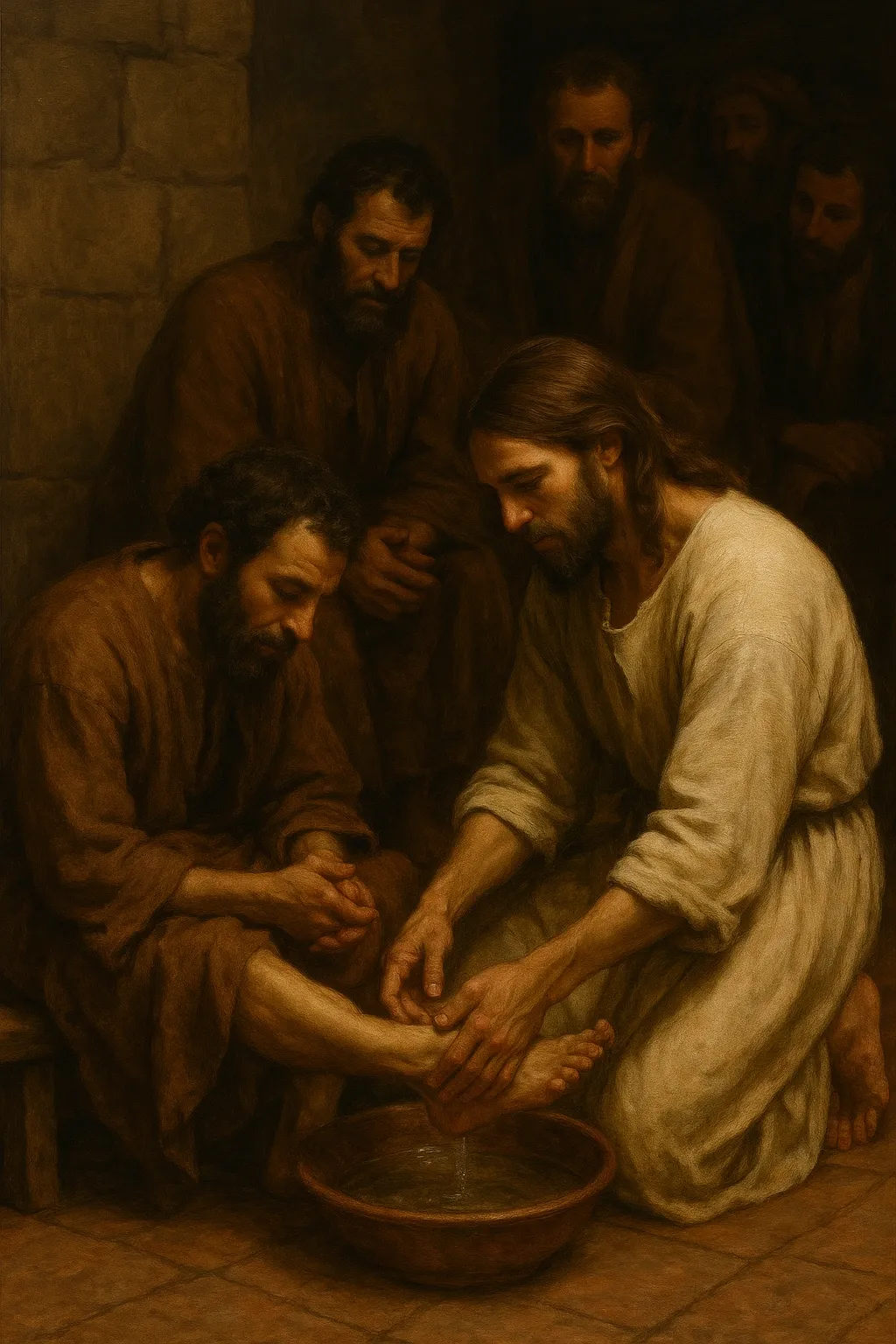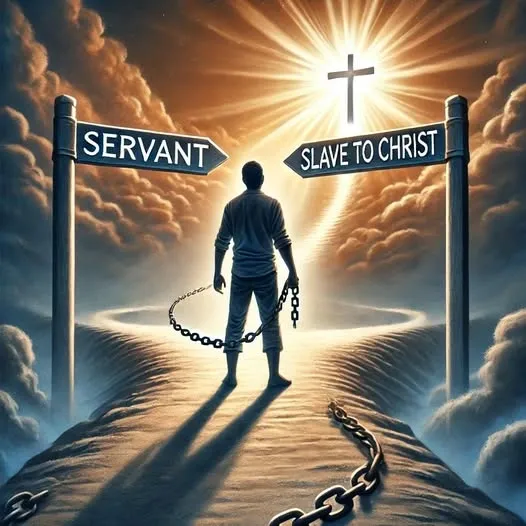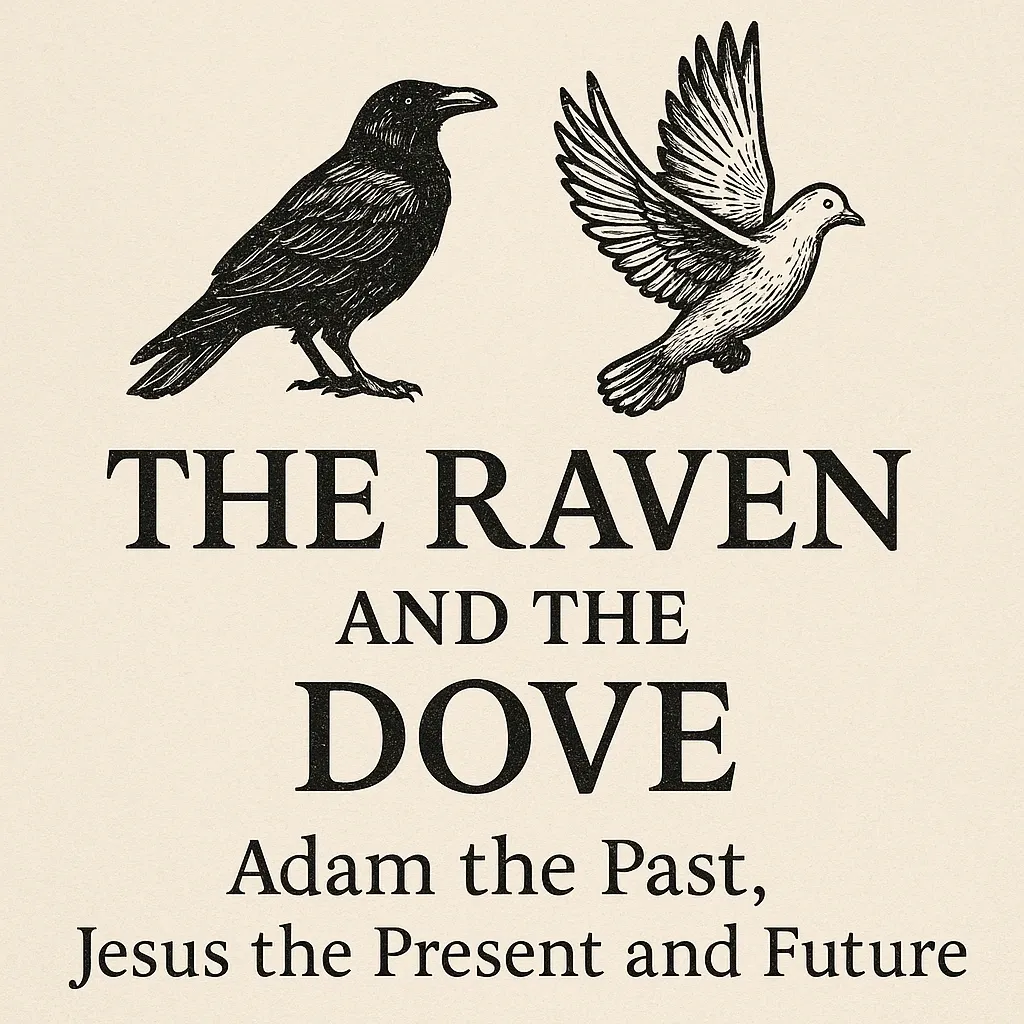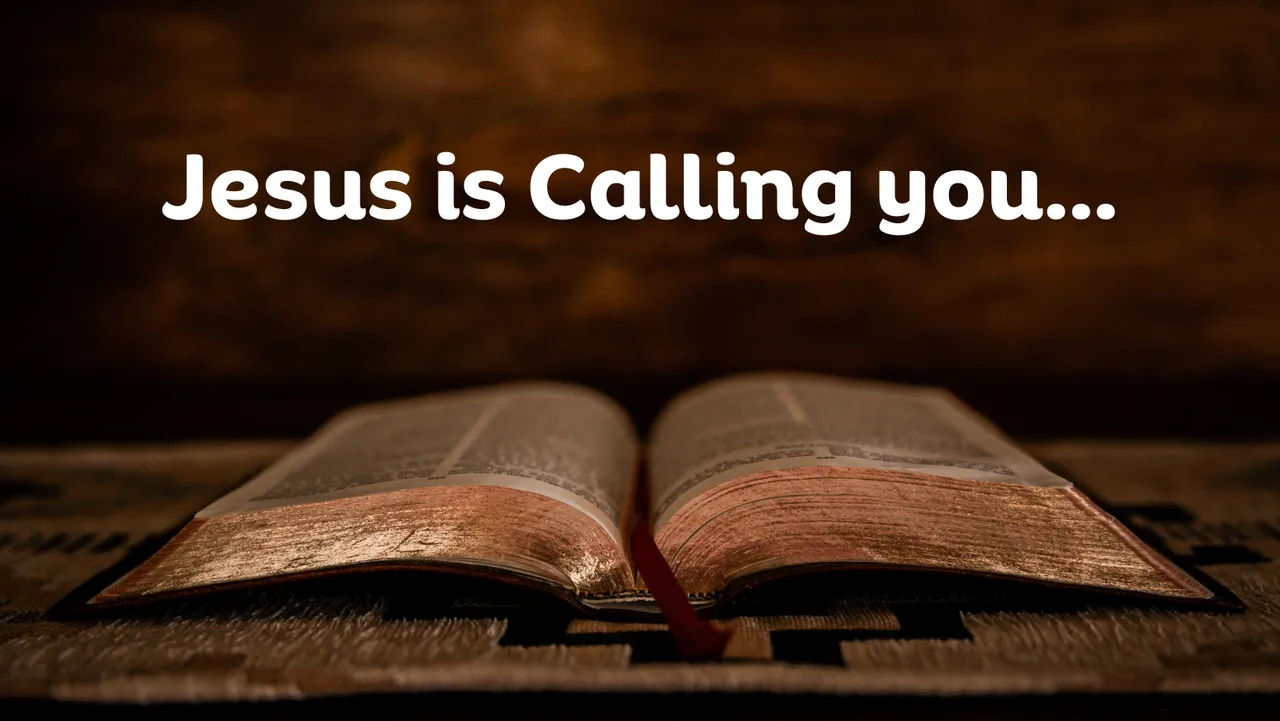
Let’s be honest. Serving is easy when it’s public, when people see it, and when we get praise or affirmation. But true servanthood begins where pride dies. And for most of us, pride doesn’t die quietly. It has to be crucified.
This is where most people get stuck. We’ll serve, but only if we still feel respected. We’ll help only if it doesn’t make us look small. We’ll volunteer, but not if it costs us control. But Christ didn’t call us to manage appearances. He called us to follow His example.
“Have this way of thinking in yourselves which was also in Christ Jesus, who, although existing in the form of God, did not regard equality with God a thing to be grasped, but emptied Himself, by taking the form of a slave, by being made in the likeness of men.” (Philippians 2:5–7, LSB)
He emptied Himself. He chose the position of the lowest. He washed the feet of the men who would abandon Him — Peter, who denied Him, and Judas, who betrayed Him.
“You call Me ‘Teacher’ and ‘Lord’; and you are right, for so I am. If I then, the Lord and the Teacher, washed your feet, you also ought to wash one another’s feet.” (John 13:13–14, LSB)
That’s not a metaphor. That’s a command. The King of Kings picked up a basin and a towel. What excuse do we have?
Servanthood is not optional. It is obedience. But it can’t just be outward. It has to be inward. Because there is a kind of service that still protects pride: the kind that serves to be seen, the type that gives to feel important, the kind that hides ego behind effort. That is not Christlike. That is self-righteousness.
What does authentic servanthood look like? “Do nothing from selfish ambition or vain glory, but with humility of mind regarding one another as more important than yourselves.” (Philippians 2:3, LSB)
Not equal. More important. That’s the line most men won’t cross because it means putting others above your desires, schedule, name, and will. Jesus didn’t just do acts of service. He became a servant. And now we are called to walk that same path. But you cannot walk it carrying pride. You cannot wash feet while trying to look impressive. You cannot bend low if you are obsessed with standing tall.
“Whoever wishes to become great among you shall be your servant, and whoever wishes to be first among you shall be your slave. Just as the Son of Man did not come to be served, but to serve, and to give His life a ransom for many.” (Matthew 20:26–28, LSB)
Jesus didn’t just serve. He gave up His life. That is the cost of following Him. That is the model of manhood we are called to. So what are you still holding onto? Your status? Your comfort? Your name? If we are going to follow Christ, then pride must die. And in its place rises something the world cannot explain: a man who leads by serving, who is strong enough to be low, who does not need credit because his life belongs to Someone greater.
This is not soft Christianity. This is Christlikeness. And it is time we return to it.
When pride dies, something more substantial takes its place: responsibility. Not the kind that demands attention, but the kind that shows up regardless of who notices. That’s the heart of Biblical leadership — not control, not applause, just obedience. Jesus didn’t just say “serve.” He showed us how to lead from below.
“If I then, the Lord and the Teacher, washed your feet, you also ought to wash one another’s feet.” (John 13:14, LSB)
The Lord and Teacher stooped. The King of the universe bent His knees and touched the dirtiest parts of His followers. That was leadership. That was strength. Men today chase influence. Jesus chased obedience. He didn’t fight for a seat at the table — He prepared the table, served the bread, and carried the cross.
So what does this look like for us? In your home, it means leading your family by example — not barking orders or demanding respect, but washing their feet metaphorically daily. You don’t lead your wife by dominating her; you lead by loving her as Christ loved the church — by sacrificing for her (Ephesians 5:25). You don’t raise your children with fear and frustration; you raise them with patience, correction, and constant prayer (Ephesians 6:4). You don’t make your home your throne. You make it your altar.
In your church, it means not waiting to be handed a microphone. It means showing up early, staying late, picking up the trash, and praying when no one sees. In your community, it means choosing integrity when it costs you something. It means being the same man in public that you are in private. It means stepping up when others sit back. That is not weakness. That is war against the flesh.
And here’s the truth most won’t admit: being a servant is costly. You will be overlooked. You will be underappreciated. You will feel unseen. And that’s precisely where God wants to shape you. Because the more hidden you are from the world, the more usable you are to Him.
“So, when you do what you are commanded, say, ‘We are unworthy slaves; we have done only that which we ought to have done.’” (Luke 17:10, LSB)
You aren’t owed recognition. You owe your life to the One who bought it. So lead. Lead by kneeling. Lead by dying to pride. Lead by going last. Lead by taking hits for others and not needing credit. That is Biblical manhood. It doesn’t demand — it serves. It doesn’t self-promote — it self-denies. It doesn’t point fingers — it bears burdens. That is the strength of a servant. That is the leadership the world cannot copy. That is the image of Christ in you. And if you are willing to go low, God will do something great through your obedience.





 In Exodus 16, the Israelites, weary and hungry in the wilderness, experienced God’s miraculous provision as manna rained from heaven. This daily bread was not merely sustenance but a profound demonstration of God’s intimate care and faithfulness. Each morning, as they gathered what was needed, the Israelites encountered tangible evidence of a God who met the needs of His people.
In Exodus 16, the Israelites, weary and hungry in the wilderness, experienced God’s miraculous provision as manna rained from heaven. This daily bread was not merely sustenance but a profound demonstration of God’s intimate care and faithfulness. Each morning, as they gathered what was needed, the Israelites encountered tangible evidence of a God who met the needs of His people.




